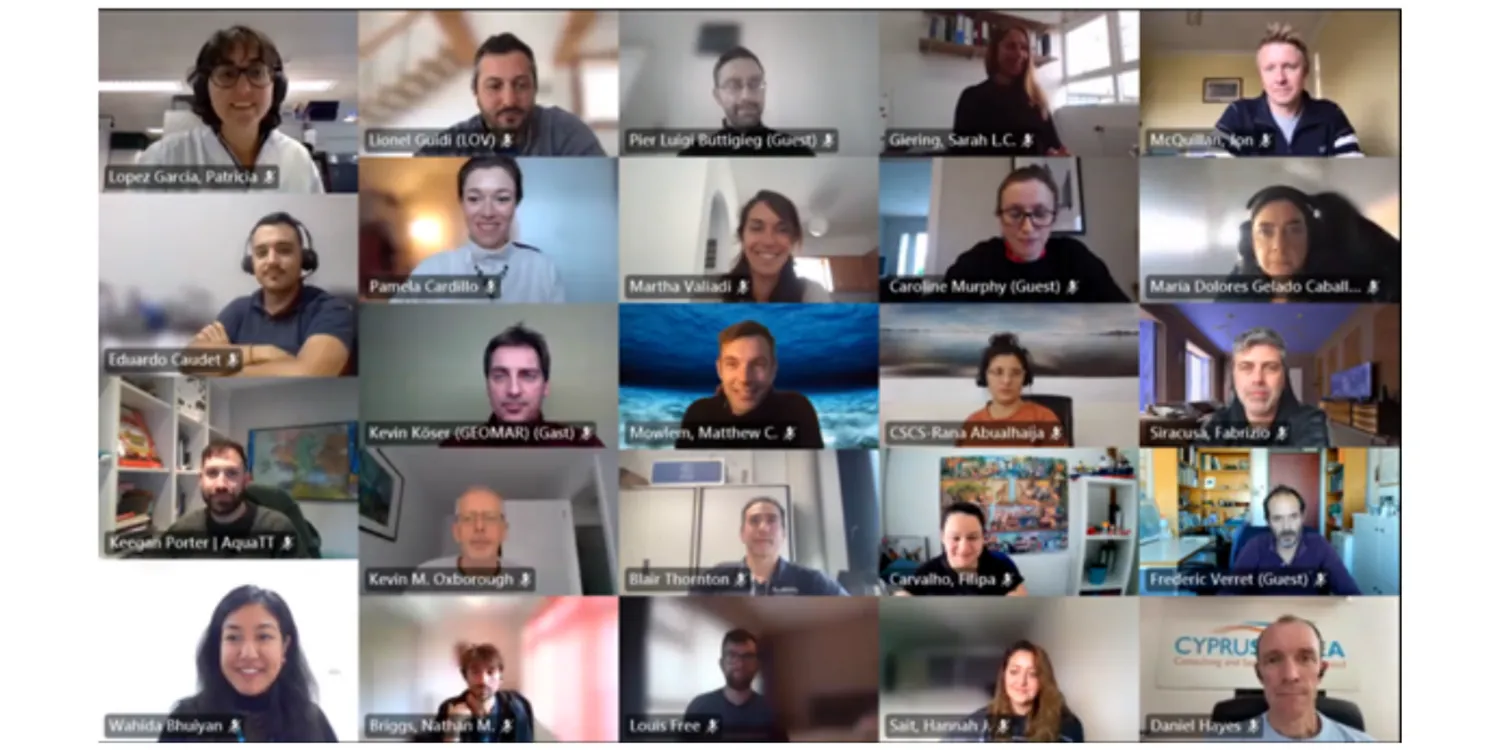07 Nov 2022
TechOceanS’ 2nd Annual Meeting saw thirteen partners from eight countries come together on the 2nd and 3rd of November to share the strides they have made towards developing the next generation of low-cost, mass-deployable sensors. Although the meeting was virtual, the conversations, camaraderie, and of course the science were as front and centre as ever!
During the meeting, partners presented an overview of work carried out to date across all six project Themes. Within the Genomics Theme it was reported that in total 11 assays (tools that allow for the biochemical analysis of specific species) have moved into field studies with partners. These will have future applications in the monitoring of Harmful Algal Blooms (HABs) and other environmental threats. Cutting-edge innovation was also presented in the Imaging and Optics Theme where a new in situ primary productivity sensor was presented (Chelsea Technologies Limited) and researchers are making huge strides in compressing image data to reduce file size, a necessary step to make real-time remote image sensing a realistic possibility.
The Microsensors Theme which develops reagent based chemical analysers and a cytometer updated on innovations to miniaturise hardware components like valves and pumps, as well as designs of multi-parameter sensors. The advancement of the TechOceanS’ prototypes was a topic of excited discussion within the Cross-cutting and Testing Theme with the meeting proving ideal timing for partners to coordinate their plans for further testing and in-situ deployments.
The Dissemination Theme provided an opportunity for the consortium to discuss which conferences and events to target in the coming months to present TechOceanS’ results for maximum impact with stakeholders. Data management, compliance with Ocean Best Practices, facilitating opportunities for Early Career Researchers, and strengthening relationships with sister projects and initiatives like the UN Ocean Decade were also hot topics of conversation.
Summing up the impressive progress made to date by all Themes, Project Coordinator Matt Mowlem of the National Oceanography Centre said:
“TechOceanS is now entering one of the most crucial phases having just passed the midpoint of the project. It is therefore timely to reflect on our progress as a partnership which has been excellent with a swathe of new technologies and techniques moving from the lab to prototypes. The months ahead promise to be intense, as we work together to conclude the development of our technologies in the lab and begin to test them in real sea conditions. This is a very exciting time for all partners as we assess the performance of our innovations in the very changeable and challenging ocean environment.”
With the project now entering its third-year exciting times are surely ahead, keep an eye on the website, Twitter (@TechOceanS) and LinkedIn for all the latest updates!
Note for editors:
- TechOceanS is a project funded by the European Union's Horizon 2020 research and innovation programme under Grant Agreement No 101000858 (TechOceanS)
- It is developing a suite of new sensors, samplers and methods that fill data gaps and reduce cost / environmental impact of making biological and chemical measurements in the oceans
- Key gaps addressed include biological and chemical data that can be collected by robots (autonomous vehicles) and uncrewed floats, buoys and moorings
- For further information visit: www.techoceans.eu
